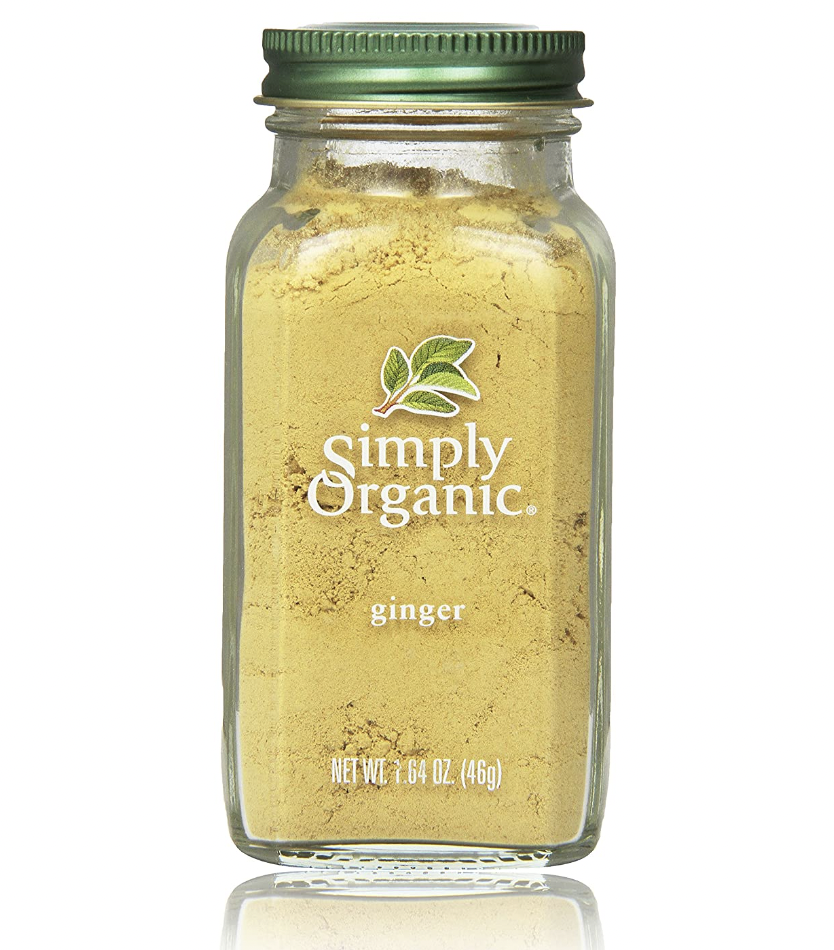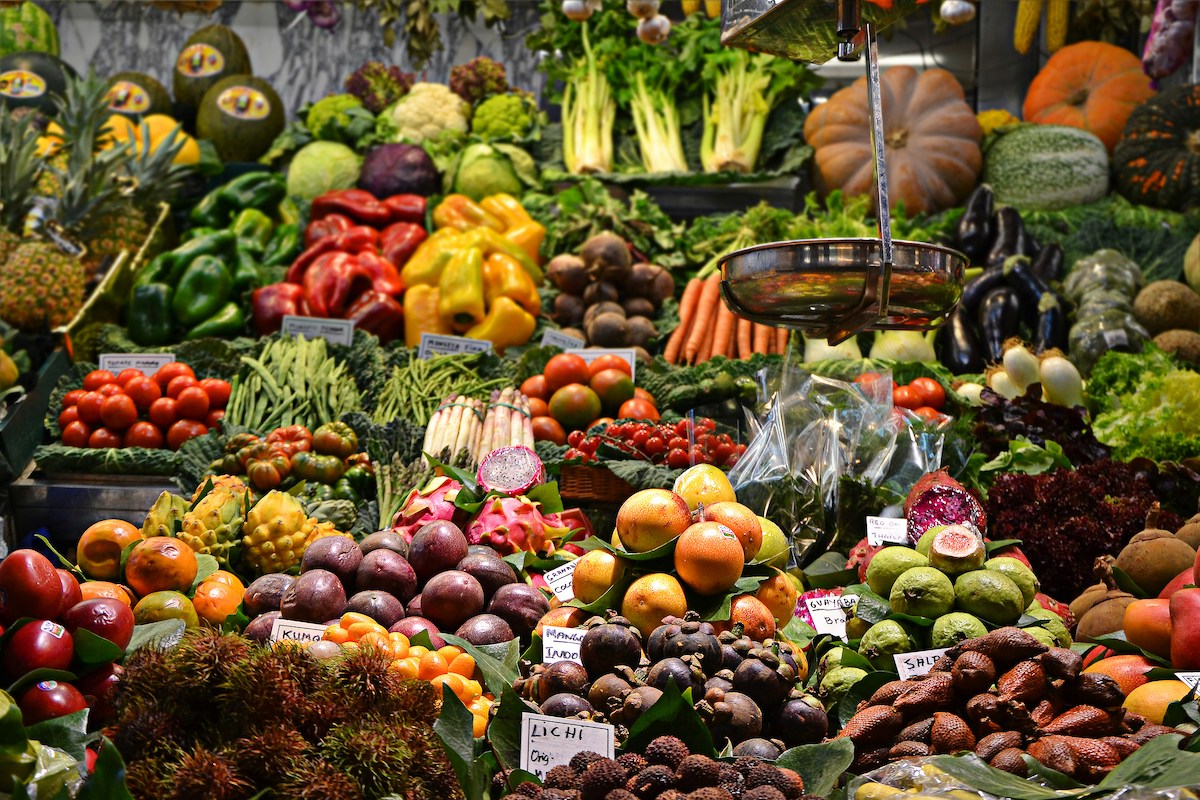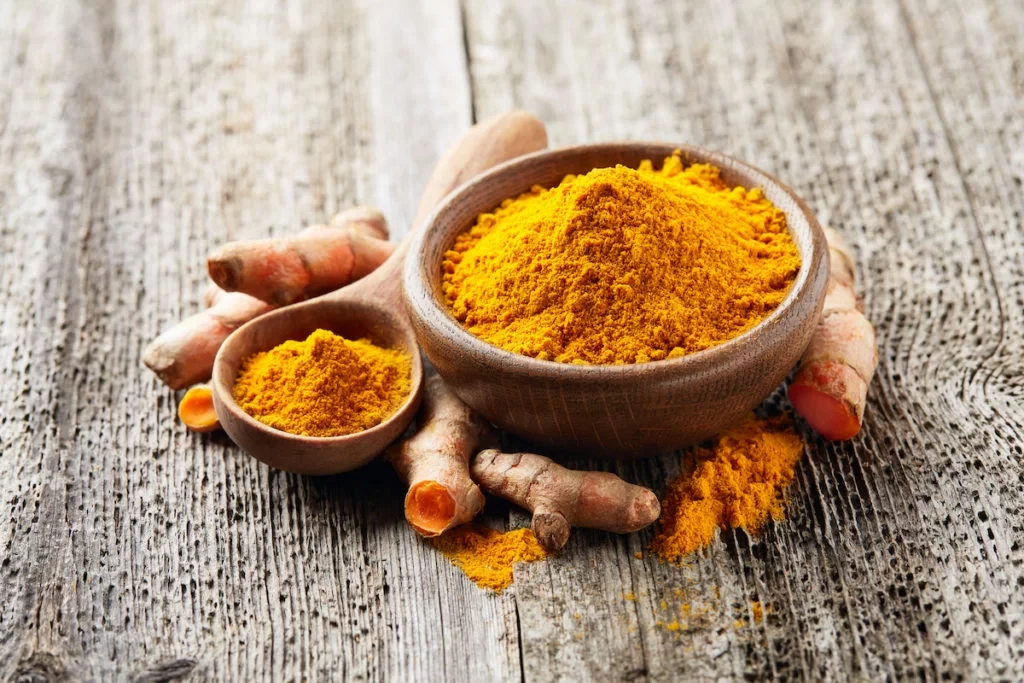Ginger – The Universal Medicine
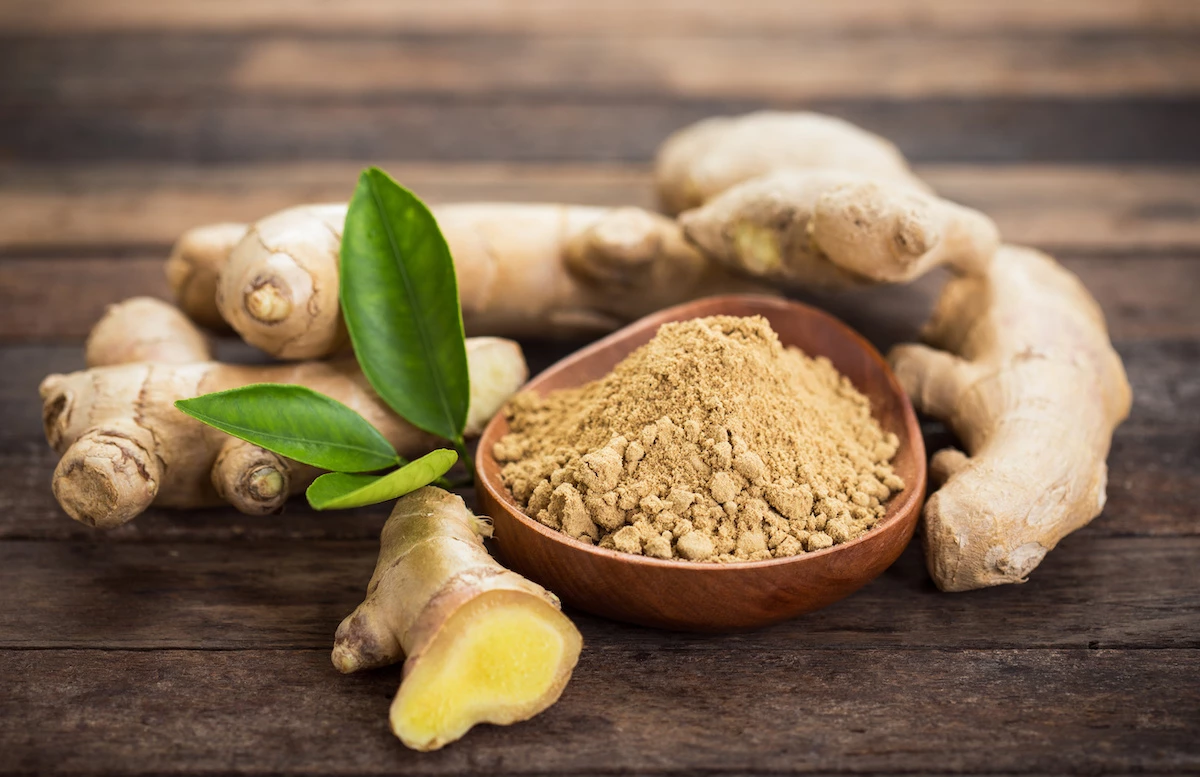
In this Article
Share
Ginger is a herbaceous plant with narrow leaf blades, rolled stems, and pale yellow flowers with purple edges. It is a rhizome (part of the stem growing below the ground) like galangal and turmeric, which are equally important in traditional medicine.
Chinese, Indian, and other Asian cuisines extensively use it as a multi-purpose spice. Although it grows in many parts of the world, India accounts for approximately 30% of the world’s ginger production.
Ginger - Fresh Or Powder
Dry ginger has drying qualities that can be soothing for Vata-dominant types. It is also oily, which means it goes deeper into the tissues than fresh rhizome with its Dry Powder counterpart – choosing one over another may depend on different individuals and uses.
Ayurveda recommends to use this spice fresh for cooking and quick home remedies related to respiratory and digestive issues. However, long-term use can aggravate Vata dosha due to these drying qualities. Conversely, dry powder is used medicinally because:
- It is concentrated.
- It is oily and can penetrate deeper into the tissues.
- People with Vata imbalance can consume it regularly.
Benefits Of Ginger
Anti-inflammatory: When heated, this spice’s smell and taste become zingerone from gingerol. It is a bioactive compound in the natural oil of ginger. Gingerol exerts anti-inflammatory and antioxidant effects on the human body. It has been expansively studied in various scientific studies as well. It is also useful in reducing stiffness and pain in joints, especially the knees. Scientific research has confirmed that ginger’s bioactive compounds have therapeutic uses to reduce symptoms in inflammation-related diseases like osteoarthritis.
Digestion: It’s pungency enhances the flavor of food and causes salivation. It’s heating effect on the stomach (virya) strengthens digestion, improves assimilation, and enhances the absorption of nutrition. Ayurveda emphatically states that one should start a meal with a few slices of this spice to ensure excellent digestive health. It has therapeutic properties to relieve abdominal pain and reinstating digestive fire in people who have lost their appetite. Although ginger is pungent, it converts into a sweet taste after digestion (vipaka).
Respiratory Health: It is a common Ayurvedic remedy to recover from a cold or sore throat. The pungency of this spice clears the sinus and protects the respiratory system from seasonal flu. However, fresh ginger is more beneficial in such remedies than dry ginger powder. Studies have shown it effectively lowers the risk of oral and respiratory bacterial infections. It can also be an effective way to prevent and treat gingivitis and other gum diseases.
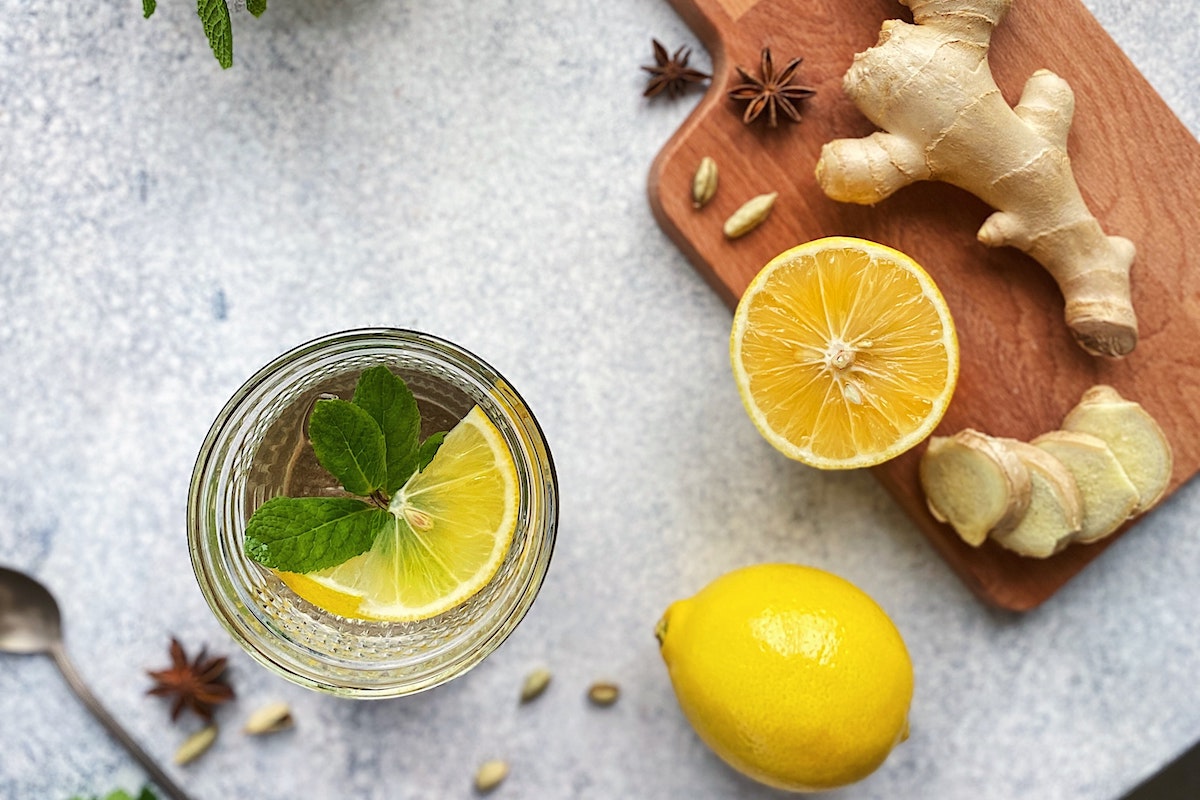
“
For centuries, ginger has helped to fight off chronic diseases that can cause so much pain and suffering. It's rich in antioxidants, which protect your body against environmental stressors.
Ayurvedic Uses For Ginger
Raw Ginger Slices: Ayurveda emphasizes that everyone should start their meals with two to three slices of this spice dressed with a bit of salt and lemon juices. This kick starts the digestive process and ensures proper digestion and absorption of food.
Ginger Tea: Fresh Ginger tea is a famous and standard recipe for cold weather and to treat flu, cough, or sore throat. There are many variations with or without the use of milk. Ginger Tulsi Tea, Ginger Lemon Tea, and Ginger Honey tea are good options for non-milk-based recipes. It is common to use cinnamon, ginger, and cardamom with milk. Suppose you are making ginger tea with milk (chai). In that case, Ayurveda recommends adding cardamom (pods or powder) to balance the qualities of this spice (fresh) to prevent any dryness in the oral cavity.
Ginger + Honey: You can steep it in warm water and add a spoon of honey once it cools down. This ginger-honey drink can tame a cough and relieve sore throat symptoms. Do not add honey to hot water.
Ginger + Ghee + Milk: Saute thinly sliced ginger in ghee and add it to milk. Add jaggery, maple syrup, or sugar to improve taste, but avoid using honey.
Additional Benefits
The other known health benefits are as follows:
- Provides relief in menstrual pain
- Has anti-carcinogenic properties
- Useful in the treatment of piles
- Has aphrodisiac properties
- Improves taste and builds an appetite
- Removes ama (toxins) from the tongue and oral cavity
- Helpful in treating morning sickness, hiccups, and nausea
- Pacifies Kapha dosha and related disorders
- Fights oxidative stress and prevents age-related decline
Recommended Ginger
At bettergreenhealth, our editors make it easy to find quality products with their years of experience and testing. When making a purchase through any of our links, we may earn a commission which helps support this blog. We are grateful for your support!
Ginger Powder – Use it as a spice in your everyday cooking or tea.


